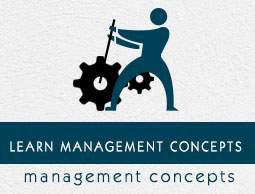Project Records Management
Introduction
Project management is an approach, which helps managers to manage the projects. Project management also means using controls in place to meet the deadlines and other requirements such as cost of the project.
These controls involve proper and effective recording of project management activities. Record management is a systematic approach for organizing, planning and tracking documents during the course of the project execution.
A-Z of Project Record Management
A record system is a systematic process in which an organization determines the following considerations, activities and characteristics:
The type of information that should be recorded.
A process for recording data.
Handling and collecting of records.
The time period for retention and storage.
Disposal or protecting records, which relate to external events.
Elements in a record management system.
Content analysis, which states or describes the record system.
A file plan, which indicates the kind of record that is required for each project.
A compliance requirement document, which will outline the IT procedures that everyone needs to follow. This will ensure that team members are fully compliant.
A method, which collects out dated documents. These should be done across all record sources such as e-mails, file servers, etc.
A method for auditing records.
A system, which captures the record data.
A system, which ensures monitoring and reporting in the way which records are being held.
Three Stages of Records
In the project record management process, there are three distinct stages. These stages have many other activities involved in order to complete and accomplish the objectives for each stage.
The stages are:
Let's have a look at each of the stage in detail.
Creating Records
This refers to the underlying reason as to why the record is being created. This could be for a receipt or for an inventory control report or some other reason.
The primary objective of project record management is to determine the flow of the record handling once the record is created. When it comes to creating records, the following questions should be answered.
Who will view the record?
Who will be the final owner of the record?
Who is responsible for storing the record?
Maintaining Records
Developing an operation to store the records refers to maintaining the records. The access levels to the records should be defined at this stage and should take all necessary steps in order to avoid the records getting into the wrong hands.
Proper compliance procedures and security measures need to be in place to avoid misusing of records.
Storing and Retrieval
Storing of records could refer to manual storage of documents as well as digital storage. Project managers need to ensure that the records are returned in the way it was borrowed. Maintaining records also refers to the amount of time that records can be maintained.
Some organizations may retain records up to six years whilst others less amount of years. If records are saved digitally, proper folders need to be created. Once created, the older documents need to be archived so that hard drive space is retained.
An Insight to Record Management Planning
Records, which are collated needs to be planned. The following outlines the steps that management needs to take to ensure record planning process is successful.
Identification of roles, which ensure that records are managed properly
Allocating dedicated roles or appointing dedicated people to categorize the records, which are available in an organization.
Appointing IT professionals to implement systems, which maintain and support record management.
Managers need to make sure that the team members are aware of the procedures in place for record management.
The record management process needs to analyze the content of the documents, which are to be saved.
Implement a file plan, which will store the different kinds of files in an organization.
Develop retention schedules, which could vary from one organization to another depending on the activity taking place.
Design effective record management solutions.
Planning of how content can be moved to record methods.
Develop a plan where e-mail integration could be made.
Plan a compliance procedure for social content.
Develop compliance procedures that align the objectives of project record system.
Conclusion
A record is a document or an electronic storage of data in an organization which acts as evidence or a guideline. A project record management is a systematic process, which allows people to retain records for future use.
It outlines the details which are relevant to the project. Hence, project record management needs to be monitored and retained in a careful manner.


